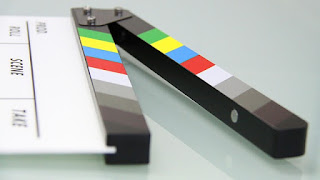5 acting tips for beginners
Hello everyone, acting is a dream and passion for more people but, they don't know how to improve their acting skills and talents. For that type of people, this blog post will help you to upgrade your acting skills.
We will see about what are the ways to do in our home to improve our acting skills and to perform more better.
Today we cover about some acting exercise and activities to improve your acting skills. This post will help for beginners who are eagerly waiting to improve them so, give attention to all the points.
Table of contents:-
- Try out variations
- Practice in front of people
- Understand your facial structure
- Imitation
- Practice cold reading
- Bonus point
1. Try out variations
The first exercise is choose a sentence or line or dialogue from a movie or anything. It may be from newspaper, internet, youtube whatever is it, but it should be like a dialogue. If you catched a sentence or a line try that same line in a different emotion and modulation. If we considered a emotion imagine how it looks in sad emotion, how it looks in happy emotion, how it looks in crying emotion, how it looks in a laughing emotion.
There are 9 types of basic emotion, we can give messages in a same dialogue by different emotions. So if you try like this you can understand how you are emoting the emotions and you can judge yourself what you can and what you cannot. If you cannot work hard and achieve, you can easily identify yourself by doing this.
 |
| An example image for expression The 9 navarasam (emotions) are - love (shringara), laughter (haasya), kind hartedness (karuna), anger (roudra), courage (veera), fear (bhayaanaka), disgust (bhubhatsya), wonder of suprise (adbhutha) and peace of tranquility (shaantha). 2. Practice in front of people The second exercise is act your dialogue or monologue in front of your family and friends, because you act good when you are alone, but in front of people you may feel some shy to show your act. Most acting learning people are like bathroom singers. You act very well in front of mirror but without mirror and some people there in front of you, you feel less confidence in the crowd. To avoid shy, fear and less confidence try to act in front of your friends and family. Avoid negative thoughts and start act infront of people. When you practice this, you can easily avoid camera fear, feel more confidence and you perform better in front of directors, artists and in the shooting spot. There is a difference between showing your emotions with the mirror and without the mirror. You see more positive changes by practicing this method. 3. Understand your facial structure Understand your face shape and structure and know which emotion will fits to you. Everyone have different structures and shapes in their face, some people look good in right side angle and some in left side angle like that everyone has a good looking side of their face whether it is left or right or staright. Every emotion will fit for you when you do infront of the mirror, when you understand your basic features it becomes more easy. Some actors looks rugged on one side and looks little romantic on another side. So, understand your angles and sides that which emotion will more suitable for you. Take your mobile phone or camera shoot yourself, try different emotions in different angles, finally analyse the result and understand which angle fits you more and which emotion is suitable for that angle. Place your camera in different angles and cover atleast 180 degree because this will easily show which side is good for anger emotion and which side is good for happier emotion and all. See more acting oriented movies, point out the camera placement and their emotions, note the angles they showed and try it. Practice more and more that which emotion you cannot catch-up easily. 4. Imitation People imitate their favourite actor/actress dialogue, performance, voice, voice modulation but they forget to focus body language. Body language is very very important, whatever make up and costumes you wear related to the character will not bring the full feel without a proper body language, it's just an make up and costumes that's all. For example :- If you do a old man character role with prosthetics make up and costumes but without a proper body language, the audience will not get the feel that he is a old man. Here you need to understand body language is important in acting. If you start practice acting as a beginner or intermidiate you should give equal importance to your body language. Slightly try to imitate your favourite actor/actress body language. At the same time don't follow only one person's body language too much, because it will attach with you like your nature body language. Make your own style of body language. It will not come as you planned, it is an nature of habit. You may see some people they follow some actor/actress body language accurately, by nature after some days they do like them. They will not know that they are doing like them. So, make a unique style of your body language. In cinema unique style is more important for an actor so, keep it in midn body language also important as same as facial expression. Artists and directors see always how unique and different you are. 5. Practice cold readingMemorize big dialogue and paragraph and then practice it. While you practice this always keep three things in mind.
Bonus point :- If cinematographer fix a close up or medium shot you should need to understand the frame and perform your act inside the frame. We see some people do over act and they always move here and there without a reason. Don't do that mistake, listen to your director's words whether he says where should you suppose to stand, sit, move, movements and follow them. Also understand your cinematographer's shot and frame size know where it starts and ends, according to that frame perform your act. It is a simple mistake, but makes many takes and camera man will struggle to move the camera to cover you. That's all viewers. I hope you understand and like this points. Make sure you have a calm environment to practice. Keep concentration and practice more, share your experience with me. If you have any doubt contact us or comment below. Check our another blog posts to learn more about cinema and photography. Follow this blog to get more information. Follow me on instagram:- |
That will helpful for your career.






Comments
Post a Comment